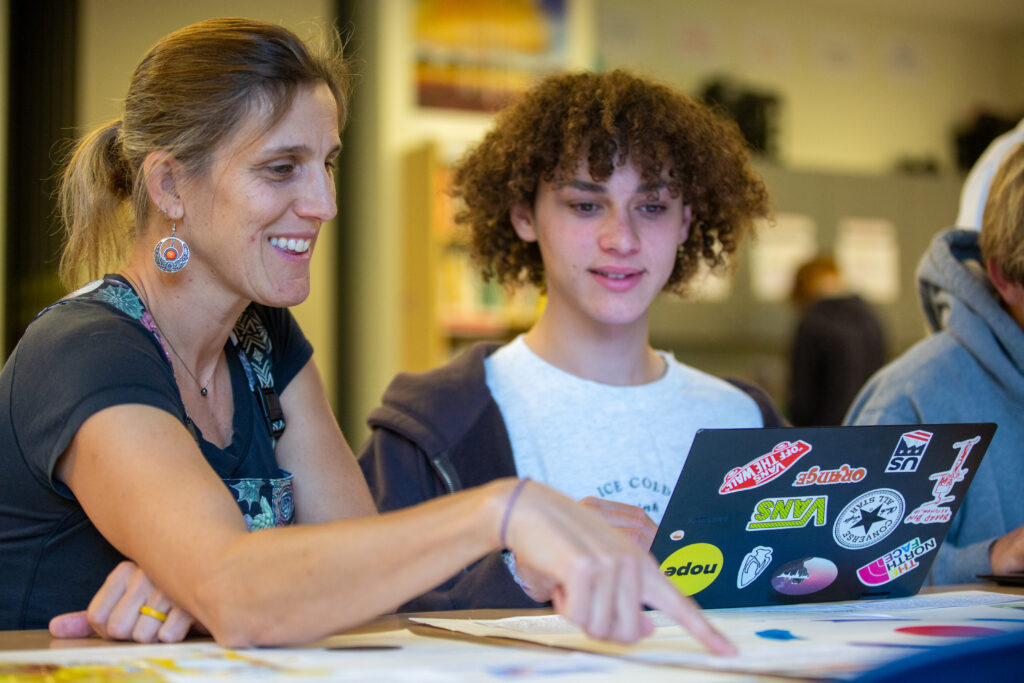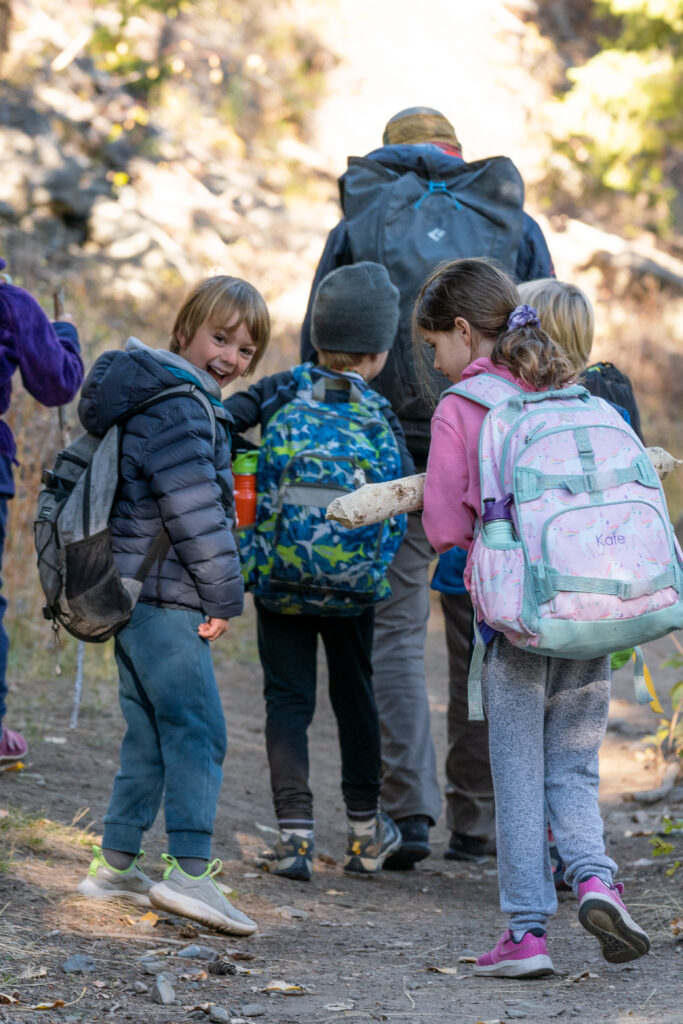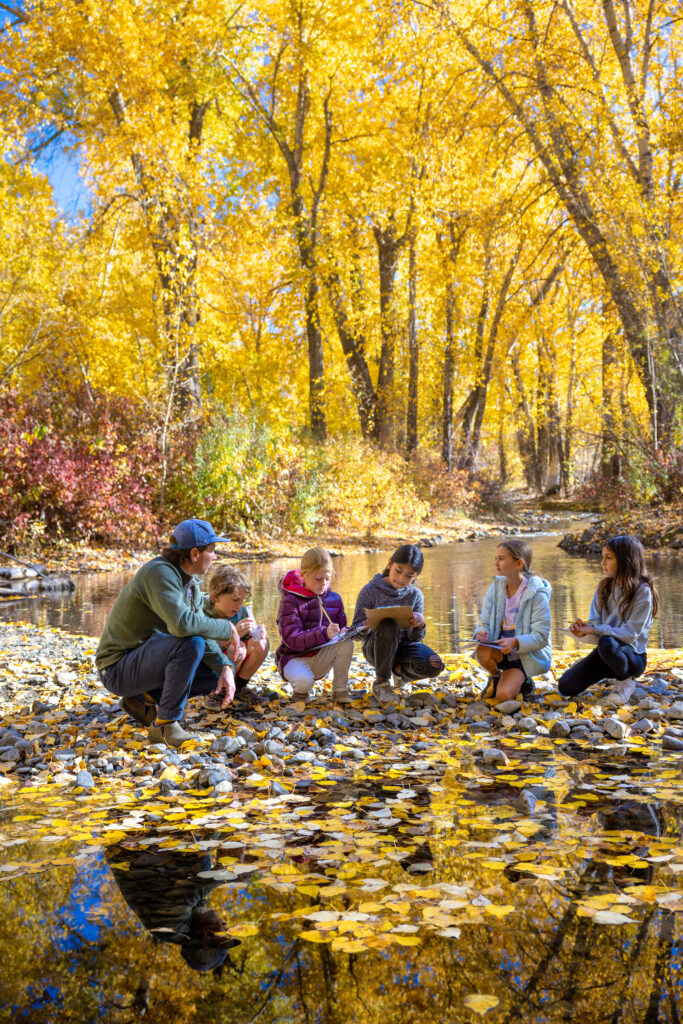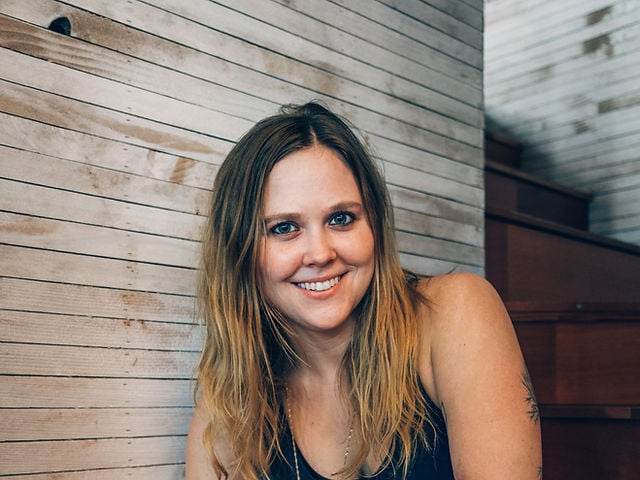Despite the relatively small size of the Wood River Valley, educational institutions abound, with sizes and styles for every type of learner. In addition to the eight public schools in the area (Hailey Elementary, Hemingway STEAM School, Wood River Middle School, Wood River High School, Alturas Elementary, Bellevue Elementary, Carey Public School, Silver Creek High School), there are also five schools providing what might be called “alternative education”: Sun Valley Community School, the Sage School, Syringa Mountain School, Pioneer Montessori School, and Trinity School. Read on to learn about each of their unique curriculums, founding, and the benefits of such educational models.
Sun Valley Community School
The only independent school in the Wood River Valley educating pre-K through 12th grade, the Sun Valley Community School was founded in 1973 and serves roughly 435 students. While small class sizes, excellent teachers, and robust academics contribute to the esteemed reputation of the school, it’s some of Community School’s unique programming, like their Outdoor Program, the Academies, and Boarding Program that make it so unique. The Outdoor Program has been a key component of the school since its founding over 50 years ago and is an integral part of every student’s experience throughout their schooling. Each year, students have the opportunity to learn outdoor skills and challenge themselves throughout the seasons in trips like river rafting, building snow shelters, rock climbing, backpacking, and avalanche field days, eventually culminating in solo trips taken their junior and senior years. These transformative experiences truly embody the school’s ethos that not all classrooms have walls.
Another noteworthy part of the Community School’s curriculum are the Academies: Sun Valley Ski Academy, Outdoor Leadership Academy, and Creative Arts Academy. Each allows students to focus on their passions while still maintaining academic excellence. Part of the Ski Academy is the school’s boarding program, which allows snow sport athletes the chance to board within minutes of both a high-caliber school and world-class mountain.



The Sage School
Located on Quigley Farm Road in Hailey, the Sage School was founded in 2009. Founder and Head of School Harry Weekes began teaching in 1992, and over the course of his career realized that students were getting disconnected from the natural world and losing their innate curiosity. Cofounder and teacher Chris McAvoy had similarly become disenchanted with standardized education, realizing that students were in a critical juncture of life to construct their identities and connect to the world they live in, neither of which were being served in public schools. The two decided to leave behind the one-size-fits-all approach to learning and create their own school, designed around teenagers and their human development, honoring each stage of adolescence, encouraging exploration and freedom, and developing knowledge of self.
Now operating in its fifteenth year, the Sage School has roughly 100 students across grades 6 through 12. While the overarching theme for the entirety of a Sage School student’s schooling is reestablishing connection to self, community, and nature, each “band” (rather than grade, as some grades are combined) is dedicated to a different focus, from the 6th/7th grade band (“otters”) who focus on their playful nature to the 12th grade band (“owls”) who focus on transitioning into adulthood. The school’s curriculum is divided into academic skills, cognitive skills, social and emotional skills, human ecology, self-awareness, community responsibility, and sense of place, as well as daily Spanish, five weeks annually in field studies, two hours weekly in community action (in addition to a student-designed individual year-long community service project), and a daily wellness practice (usually physical outdoor activities but also practices like mindfulness).
Syringa Mountain School
This tuition-free public charter school was founded in Hailey in 2013 and serves students in grades K–8. Inspired by the principles of the Waldorf education model, founder Katherine Woods originally founded the school as the small, private Mountain School, which has since grown into the public charter it is today, allowing all children—not just those with the financial means—to reap the benefits of this type of education.
The Syringa Mountain School relies on the core principles of the Waldorf educational model, which emphasizes using real-world experiences rather than virtual tools to help students actively participate in their education and to form healthy relationships with the world around them. As a school based in such an outdoor-centric town, Syringa has accentuated students’ relationships with the natural world around them, creating opportunities for outdoor learning through their farm and garden program and sustainable living practices.
The curriculum is presented in main lesson “blocks” of typically six-week sessions, all while maintaining consistent daily rhythms and preservation of childhood. In addition to standard subjects, like math and science, Syringa also incorporates subjects like storytelling, the arts, physical activity, world languages, seasonal studies and festivals, and practical arts or handwork (like fiber arts and animal husbandry).
Pioneer Montessori School
The Pioneer Montessori School in Ketchum started as a vision shared between a dedicated teacher and a small group of parents who wanted to offer their children the best educational experience possible. The school was founded in 1980 with just eighteen students, ages 2 through 5, though the school now serves students in pre-primary (18 months to 3 years), and primary (ages 3–6), and elementary (ages 6–12). Though only a five-classroom institution, the school has inspired countless students, relying on the Montessori model of education—the vision of Dr. Maria Montessori—which utilizes a systematic curriculum in a beautiful and carefully prepared environment that encourages independence and problem-solving.
Pioneer Montessori students learn in a three-year cycle in a multi-age classroom, spending three consecutive years in the same environment with the same “guide” (teacher) and shifting roles as they start each cycle as a newcomer and eventually become a mentor to those students entering the cycle. Each student is given the freedom to pursue their passions and take ownership over their learning and growth, with their trained Montessori guide providing support.


Trinity School
The latest cohort to the alternative education model in the Wood River Valley is the Trinity School. Located in Bellevue, this small school serves grades 1–8 and roughly 20–24 students a year. Founded in 2015 by a group of parents and teachers wanting to provide students with extraordinary education, the Trinity School allows students to learn from a truly magical space: a thirty-foot insulated yurt on three acres adjacent to the Big Wood River, with chickens, rabbits, two Nigerian Dwarf goats, and lots of local wildlife also sharing the space.
Founder and lead teacher Travis Scott was introduced to the Waldorf education model when his daughter attended preschool at the Mountain School (now Syringa Mountain School). Inspired by the Waldorf principles, he began studying it deeper, as well as philosophy, eventually becoming a teacher at the Mountain School in 2011 and completing his Waldorf teacher training in 2014. Using his Waldorf education, as well as a background in the healing arts, wilderness guiding, and a love of literature, Travis started Trinity, whose name signifies several different “trios” involved in the school: the three aspects of each child the school seeks to develop (thinking, feeling, and willing); the cooperative nature of education between child, teacher, and parents; and the impact Trinity hopes to make on each child, family, and the community.
The Trinity School’s curriculum includes traditional subjects like math, sciences, speech and writing, history and geography, and languages, as well as practical skills (handwork, woodwork, gardening, animal husbandry, and woodland schools), theater and festivals, and the arts.
